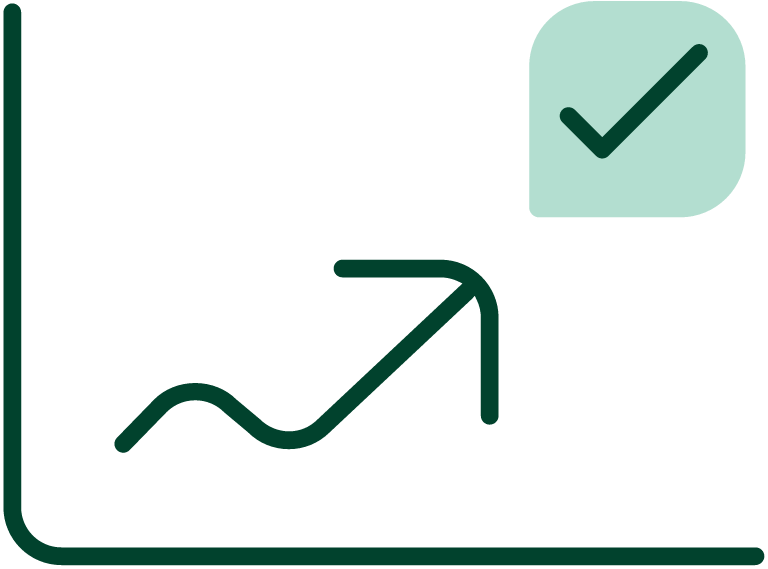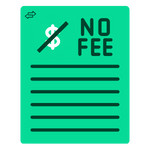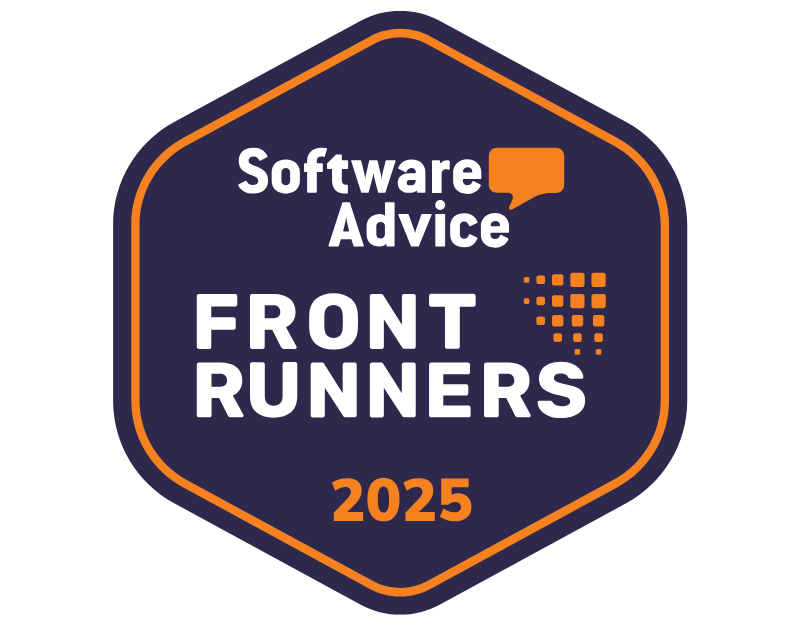The global economic situation is starting to show signs of improvement, but businesses are still being cautious. And with rising interest rates and inflation, there is a much lower tolerance for slower cash flow and late payments than there used to be. From cash flow issues to inefficient payment processes and the inability to choose from a variety of payment methods, B2B companies face a number of challenges with regards to the timely payments of invoices.
So how can companies ensure ahead of time that they are doing business with a reputable business that will pay on time and minimize the risk of late payments as much as possible? One possibility is by running a business credit report and check a business’s credit score for new customers.
What is a Business Credit Score and Company Credit Report?
A business credit score is a rating whose goal is to demonstrate how financially responsible a business is as well as its potential for profitability. The number and type of credit applications, payment history, history of debt, company structure and personal credit score of the founders or owners all affect a business credit score. A good credit score is essential for assisting a business in its ability to get funding, win contracts, save time and resources – and as a result of all of the above, stay ahead of the competition.
A company credit report is a detailed list of information about a business, including current and past debts, payment history, legal proceedings, and possibly credit ratings and risk assessments. This financial information is meant to help a company understand the likelihood of a business paying its debts, commitment to business obligations, and the general risk your company may face entering into a business relationship with it.
How to Check Business Credit
Regular checks help ensure the accuracy of your credit information and allow you to address any discrepancies promptly. Here’s a guide on how to check your business credit:
- Identify Major Business Credit Bureaus
Several agencies compile business credit information. We have complied a list of the best ones in the market below.Each bureau may have different information, so it’s advisable to check reports from several to get a comprehensive view.
- Obtain Your Business Credit Reports
To access your business credit reports contact one of the credit reporting agencies below and ask for your company’s credit report. Note that while some bureaus may offer limited information for free, comprehensive reports often come at a fee.
- Review and Analyze the Reports
Once you have the reports:
- Verify Information: Ensure that all details, such as your business name, address, and financial data, are accurate.
- Assess Credit Scores: Each bureau uses different scoring models. Familiarize yourself with their scales to understand your standing.I
- Identify Discrepancies: Look for any inaccuracies or outdated information that could negatively impact your creditworthiness.
- Address Inaccuracies and Maintain Good Credit Practices
If you find errors:
- Dispute Inaccuracies: Contact the respective bureau to dispute and rectify incorrect information.
- Maintain Timely Payments: Consistently paying bills on time enhances your credit profile.
- Limit Credit Utilization: Avoid maxing out credit lines; keeping balances low relative to limits is favorable.
Regularly monitoring and managing your business credit ensures that your company remains in good financial standing, facilitating growth and favorable business relationships.
 No Fees, Just Payments: New at Gaviti
No Fees, Just Payments: New at Gaviti
ACH processing is now available for free in the Gaviti Self-Service Portal! Your customers pay you electronically, the money goes directly to your back account, and you get to keep 100% of your revenue. 💳 Click. Pay. Done.
Learn More About No-Fee ACHOur Top 5 Credit Bureau Companies for B2B in 2024
Companies can only run a business credit report through a company credit report service that can gather the relevant information on their new customer, so it’s important to choose your credit report service wisely.
Here’s our recommended list in no particular order:
1. CreditSafe
Among the company credit report services listed here, CreditSafe is unique in that it focuses on delivering services to B2B businesses by offering credit information to over 365 million businesses around the world. The company is strong in its ability to predict whether or not a business has the ability to pay its debt up to a year in advance, and its credit reports and limits are highly respected in the industry. In addition, the company boasts a customer retention rate of 95%.
Gaviti partners with CreditSafe as part of its Credit Application module, which facilitates the A/R credit management process for companies.
Pros: Delivers credit reports to businesses in over 160 countries; easy-to-use interface; reliable data provides trustworthy insights into business’ financial situation
Cons: Data may be limited when it comes to certain financial risks, regions or businesses in specific industries.; credit ratings need to be combined with other data to gain a complete picture of a business’ creditworthiness
2. Experian
Part of the UK’s reputable FTSE index, Experian offers credit ratings to both businesses and individuals and also helps protect them against fraud and other financial crimes. Its continually updated database delivers information to over 27 million businesses in the UK, including financial data, credit score and risk factors, collection history, past loans and bankruptcies.
Pros: Offers additional services for businesses to protect against fraud, identity theft and unauthorized transactions; advanced analytics and decision-making tools; credit reports are quite detailed
Cons: The premium service is not affordable for businesses with tighter budgets; it is reliant on the underlying data sources; the business software may require a learning curve
3. Dun and Bradstreet
With over 30,000 data sources in over 200 countries, this leading business credit report provider offers extensive credit reports to its customers. Their variability rating is a noteworthy feature that assists in evaluating a business ’current and future performance, and its credit rating scores are determined based on both past and future financial forecasts.
Pros: An extensive database of over 500 million records globally; detailed credit reports that facilitate informed business decisions; credit scores and ratings based on past and future performance
Cons: Data obtained through the software requires due diligence to ensure accuracy; business software may require a learning curve; out of budget for some businesses
4. Equifax
With offices in 25 countries, Equifax has a strong global presence in the business credit report space, offering both individual and company credit reports, with a focus on SMBs. In addition to credit reports, it helps consumers and companies fight fraud, meet regulatory compliance and defend against identity theft. Many of their long-term customers attribute Equifax’s success to their commitment to their customer satisfaction and the personal relationship the company invests in them.
Pros: International presence and strong expertise; a wide range of solutions beyond credit reports; and direct access to consumer and company data
Cons: The company suffered a high-profile data breach in 2017 that exposed the information of 235 million users which makes new customers wary; is expensive for companies with smaller budgets; offers limited data and analytics which can be challenging for businesses focusing on a specific niche or segment of the population
5. RedFlagAlert (RFA)
Headquartered in the UK, RFA boasts a database of over 15 million businesses and more than 180,000 daily updates. As a cloud-based business intelligence software, it delivers data in real-time so that financial professionals can make the right decisions about sales, credit risk assessment and compliance for companies based in both the UK and abroad. Its data originates from top market-data business leaders, enhanced by AI-powered algorithms.
Pros: In-depth information in real-time; offers the ability to access data anywhere; a data-driven approach that provides accurate information and offers better operational efficiency
Cons: Data is only as good as its source; price is on the higher end; can take time for teams to become familiar with the software
Why is it Important for Businesses to Check Credit Reports?
It is important for businesses to check the credit reports because they help build trust with their suppliers, partners, external contractors and third parties. After running a credit check, a business has a better understanding of their customer’s history of managing and paying debt, and it can decide whether or not to pursue a business relationship with that party. In some cases, running a simple credit check helps to mitigate risk they would not have otherwise known about in advance.
Why is it Important for Businesses to Build Credit?
It is important for businesses to build credit because they help build trust with their suppliers, partners, external contractors and third parties. After running a credit check, a potential business partner has a better understanding of the company’s history of managing and paying debt, and it can decide whether or not to pursue a business relationship with that party. In some cases, running a simple credit check helps to mitigate risk they would not have otherwise known about in advance.
How Gaviti Helps Manage the Credit Application Process
One of the best to keep DSO manageable and reduce write-off is to avoid starting a relationship with risky customers from the get-go.
Gaviti’s credit management and monitoring module facilitates this by:
- Simplifying the credit application process. Automate the credit request process and offer credit checks at a discount, keeping real-time track of all credit requests and setting credit limits directly into the customer profile.
- Delivering real-time credit alerts. Stay ahead of credit risk and minimize the impact on your cash flow and reduce the likelihood of bad debt.Trigger alerts based on predefined thresholds or specific criteria, allowing you to prioritize collections efforts and address potential issues promptly.
- Integrating external and internal data. Integrate A/R data with external data such as credit ratings agencies and other reputable sources, to gather information on the creditworthiness of your customers. Leverage the data to gain valuable insights into the financial stability and credit risk associated with each customer.
- Defining and managing credit limits for customers. Set credit limits based on creditworthiness and risk assessment to proactively monitor and control exposure to potential credit risks.
- Providing customizable risk assessment criteria. Customize and define the criteria that align with your specific business needs. Tailor the risk assessment process to your requirements, ensuring a targeted and effective credit management strategy.
- Offering comprehensive reporting and analytics. Make credit decisions based on the most up-to-date information from a centralized analytics dashboard, helping to facilitate better trust among both companies and their customers. Get a streamlined, transparent system that centralizes visibility – all building blocks of a solid foundation for enhancing the relationship with your customer.
Want to learn more about how you can streamline your company’s credit management ? Schedule a Demo.










 No Fees, Just Payments: New at Gaviti
No Fees, Just Payments: New at Gaviti











